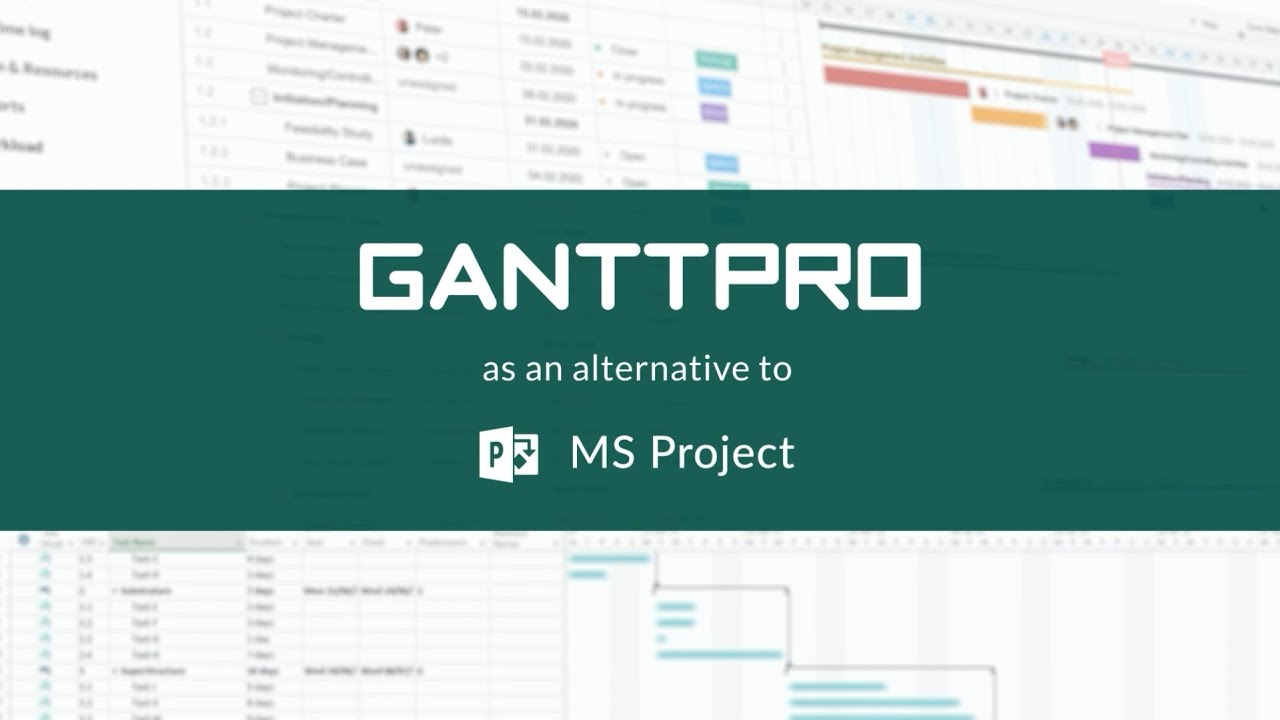20 Things Every Project Manager Should Know
Project management is a complex and challenging field, requiring a diverse range of skills and knowledge. To be an effective project manager, you need to stay informed on a wide range of topics and be prepared to adapt to changing circumstances. Here are 20 things that every project manager should know in order to be successful.
1. The Basics of Project Management
Project management is the process of leading a team towards the successful completion of a project. There are a number of key principles that underlie this process, including:
- Defining the project scope and objectives
- Developing a plan for how the project will be executed
- Monitoring and controlling the progress of the project
- Managing risks and issues that arise during the project lifecycle
To be effective as a project manager, you need to have a strong understanding of these basic principles and be able to apply them in your work.
2. Understanding Your Team’s Strengths and Weaknesses
One of the most important aspects of project management is understanding the strengths and weaknesses of your team members. This involves:
- Identifying each team member’s skills and expertise
- Assigning tasks based on those skills and expertise
- Providing support and guidance to help team members grow and develop
By understanding your team’s strengths and weaknesses, you can create a more effective and efficient working environment and ensure that everyone is contributing to the project in the best way possible.
3. Effective Communication Skills
Effective communication is key to the success of any project. As a project manager, you need to be able to:
- Communicate the project objectives and goals clearly to your team
- Ensure that everyone is working towards the same goals
- Keep everyone informed of project progress and changes
- Encourage open and honest communication among team members
By developing strong communication skills, you can build trust with your team and create a positive and productive working environment.
4. Risk Management
Another important aspect of project management is risk management. As a project manager, you need to be able to:
- Identify potential risks and threats to the project
- Develop plans to mitigate those risks
- Monitor the progress of the project and adjust your risk management strategy as needed
By proactively managing risks, you can minimize the impact of unexpected events and ensure that your project stays on track.
5. Time Management
Time management is critical for project success. As a project manager, you need to be able to:
- Develop a detailed project schedule
- Assign tasks and deadlines to team members
- Monitor progress and adjust the schedule as needed
By effectively managing time, you can ensure that your project is completed on time and within budget.
6. Budget Management
Budget management is another key aspect of project management. As a project manager, you need to be able to:
- Develop a budget for the project
- Monitor spending and make adjustments as needed
- Ensure that the project is completed within budget
By effectively managing the project budget, you can ensure that your project is financially viable and that resources are being used in the most effective way possible.
7. Stakeholder Management
Stakeholder management is an important aspect of project management. As a project manager, you need to be able to:
- Identify all stakeholders involved in the project
- Communicate with stakeholders regularly to keep them informed of project progress
- Manage stakeholder expectations and resolve any conflicts that arise
By effectively managing stakeholders, you can ensure that everyone is working towards the same goals and that the project is a success.
8. Change Management
Change management is a critical aspect of project management. As a project manager, you need to be able to:
- Identify potential changes to the project
- Evaluate the impact of those changes
- Implement changes in a controlled and effective manner
By effectively managing change, you can ensure that your project continues to move forward and that everyone is working towards the same goals.
9. Quality Management
Quality management is an important aspect of project management. As a project manager, you need to be able to:
- Define the quality standards for the project
- Monitor the qualityof work being performed
- Ensure that the project meets quality standards
- Take corrective action if necessary
By effectively managing quality, you can ensure that your project is delivered to the highest standards and that stakeholders are satisfied with the end result.
10. Resource Management
Resource management is a key aspect of project management. As a project manager, you need to be able to:
- Identify the resources needed for the project
- Allocate those resources effectively
- Monitor resource usage and make adjustments as needed
By effectively managing resources, you can ensure that your project is completed on time and within budget.
11. Agile Project Management
Agile project management is a popular approach to project management that emphasizes flexibility and collaboration. As a project manager, you need to be familiar with the principles of agile project management and be able to:
- Work with your team to develop a flexible project plan
- Respond to changes and adapt your plan as needed
- Encourage teamwork and collaboration among team members
By using agile project management techniques, you can create a more flexible and responsive project environment and ensure that your project is a success.
12. Waterfall Project Management
Waterfall project management is a traditional approach to project management that emphasizes structure and control. As a project manager, you need to be familiar with the principles of waterfall project management and be able to:
- Develop a detailed project plan
- Monitor progress and control changes to the plan
- Ensure that the project is completed on time and within budget
By using waterfall project management techniques, you can create a more structured and controlled project environment and ensure that your project is a success.
13. Scrum Project Management
Scrum project management is a popular approach to project management that emphasizes teamwork and collaboration. As a project manager, you need to be familiar with the principles of scrum project management and be able to:
- Work with your team to develop a flexible project plan
- Monitor progress and adjust your plan as needed
- Encourage teamwork and collaboration among team members
By using scrum project management techniques, you can create a more flexible and collaborative project environment and ensure that your project is a success.
14. Lean Project Management
Lean project management is an approach to project management that emphasizes efficiency and continuous improvement. As a project manager, you need to be familiar with the principles of lean project management and be able to:
- Identify areas for improvement in your project processes
- Implement changes to improve efficiency and reduce waste
- Continuously monitor and improve the project processes
By using lean project management techniques, you can create a more efficient and effective project environment and ensure that your project is a success.
15. Gantt Chart Software
Gantt chart software is an essential tool for project management. There are many different types of gantt chart software available, including:
- Microsoft Project
- Wrike
- ClickUp
- Monday.com
- Smartsheet
By using gantt chart software, you can:
- Visualize the project schedule
- Assign tasks and deadlines to team members
- Monitor progress and make adjustments as needed
By using gantt chart software, you can effectively manage your project and ensure that it is a success.
16. Project Management Professional (PMP) Certification
The Project Management Professional (PMP) certification is a widely recognized and respected certification for project managers. To earn the PMP certification, you need to:
- Meet the eligibility requirements
- Pass the PMP exam
- Maintain your certification through continuing education and professional development
By earning the PMP certification, you can demonstrate your commitment to the field of project management and your expertise in the area.
17. Certified Scrum Master (CSM) Certification
The Certified Scrum Master (CSM) certification is a recognized certification for project managers who specialize in scrum project management. To earn the CSM certification, you need to:
- Meet the eligibility requirements
- Complete a CSM training course
- Pass the CSM exam
By earning the CSM certification, you can demonstrate your expertise in the field of scrum project management and your commitment to continuous learning and professional development.## 18. Prince2 Certification
Prince2 is a widely used project management methodology and certification. To earn the Prince2 certification, you need to:
- Meet the eligibility requirements
- Complete a Prince2 training course
- Pass the Prince2 exam
By earning the Prince2 certification, you can demonstrate your expertise in the field of project management using the Prince2 methodology and your commitment to continuous learning and professional development.
19. Understanding Project Management Methodologies
There are many different project management methodologies, each with its own strengths and weaknesses. As a project manager, you need to be familiar with the most widely used methodologies, including:
- Agile
- Waterfall
- Scrum
- Lean
- Prince2
By understanding the different methodologies, you can choose the one that is best suited to your project needs and ensure that your project is a success.
20. Continuous Learning and Professional Development
The field of project management is constantly evolving, and as a project manager, you need to stay informed and up-to-date. This involves:
- Reading industry publications and attending conferences and workshops
- Earning certifications
- Participating in professional organizations
- Staying informed on industry trends and developments
By continuously learning and developing your skills, you can remain at the forefront of the field and ensure that your projects are always a success.
Conclusion:
Project management is a complex and challenging field requiring a diverse range of skills and knowledge. To be an effective project manager, it is important to stay informed and up-to-date on the latest industry trends and developments and to continuously develop your skills and knowledge. By applying the principles outlined in this article, you can be well on your way to becoming a successful project manager.
.

